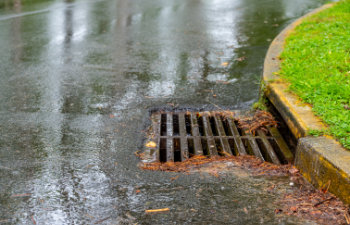6 Tips on Protecting Your Drain Field from Damage

Protecting your drain field is essential for maintaining the functionality and longevity of your septic system. The drain field, also known as the leach field, plays a crucial role in the treatment and disposal of wastewater from your home. Damage to the drain field can lead to costly repairs and environmental contamination. Here are some tips on how to protect your drain field from damage.
1. Avoid Driving or Parking Vehicles
One of the most common causes of drain field damage is the weight of vehicles driving or parking over it. The heavy weight can compact the soil, disrupt the distribution of wastewater, and even damage the pipes and chambers beneath the surface. Ensure that no vehicles are allowed to drive or park over the drain field area.
2. Be Mindful of Planting Trees and Shrubs
Planting trees or large shrubs near the drain field can pose a threat to its integrity. The roots of these plants may infiltrate the pipes and chambers, causing clogs and structural damage. Additionally, the water-seeking roots can absorb excess moisture from the soil, leading to uneven distribution of wastewater and potential system failure. It is best to avoid planting deep-rooted trees and shrubs near the drain field.
3. Dispose of Waste Properly
Do not dispose of non-biodegradable items, grease, oils, or household chemicals down the drains. These substances can clog the pipes and inhibit the natural treatment process in the drain field. Additionally, avoid flushing medications or pills down the toilet, as they can accumulate in the pipes and disrupt the flow of wastewater. Instead, dispose of medications properly according to local guidelines or through designated take-back programs.
4. Monitor Water Usage
Excessive water usage can overload the septic system and saturate the drain field, leading to poor drainage and potential system failure. Be mindful of water usage habits, such as taking shorter showers, fixing leaks promptly, and spreading out laundry loads over time. Conserving water not only helps protect the drain field but also extends the lifespan of your septic system.
5. Regular Maintenance Inspections
Schedule regular inspections and maintenance checks of your septic system by a qualified professional. A trained technician from Septic Service Pro can identify any issues early on and recommend appropriate repairs or preventive measures to protect the drain field. Routine pumping of the septic tank is also essential to remove accumulated solids and prevent them from entering the drain field.
6. Keep Surface Water Away
Ensure that surface water, such as rainwater or runoff from roofs and driveways, is diverted away from the drain field area. Excess water can oversaturate the soil and hinder the absorption and treatment of wastewater in the drain field. Install proper drainage systems, such as gutters, downspouts and French drains, to redirect surface water away from the septic system.
By following these tips and being proactive in maintaining your septic system, you can effectively protect your drain field from damage and ensure its long-term functionality. Remember that proper care and attention are essential for preserving the health and performance of your septic system, ultimately saving you time, money and potential headaches down the road. To schedule a drain field inspection or septic tank pumping in the greater Atlanta, GA, contact our team at Septic Service Pro.

